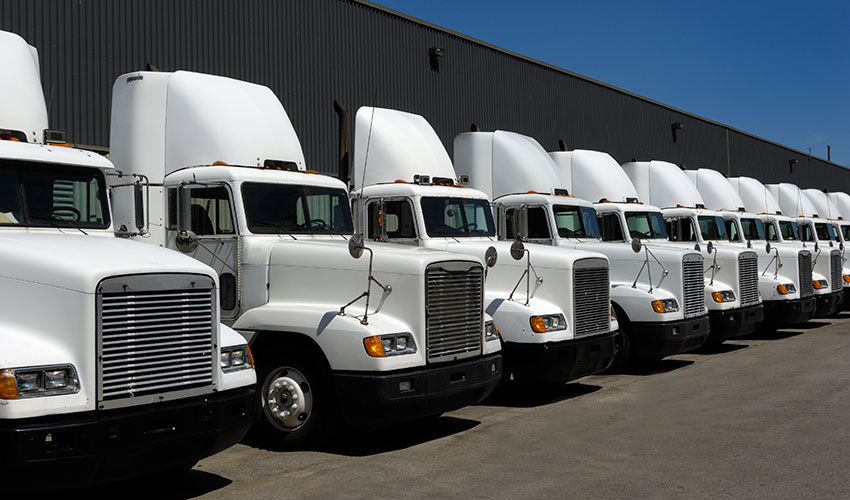
Protecting your changing business operations in a pandemic

Even businesses with the best-laid strategic and tactical plans are likely to have their operations impacted by an unforeseeable and challenging world event such as COVID-19—which has prompted responsive, dramatic, and sometimes hurriedly made changes to business operations, as well as uncertainty about the future.
One definite certainty in any crisis — and a safeguard for the future — is the need to mitigate the potential risks that arise from rapid changes in business practices and procedures.
Your insurance agent or broker can provide valuable insights when assessing and managing these risks; here are three key areas you’ll want to review.
-
Workforce adjustments
Changes in where, if, and how employees work can impact business exposures.
- Work from home employees.
- Cyber security risks may increase when employees are working in new ways, using unfamiliar software and online platforms. Limit the risk of a security breach when operating with a remote workforce by implementing strong cyber security practices and clear work-from-home policies.
- There is a possibility that claims may increase for carpal tunnel or back pain due to improper workspace set-ups or excessive work hours. Provide employees with best practices for setting up an ergonomic workspace and maintaining healthy work-life balance
- Shifting staff sizes and duties.
The way in which staff reductions are implemented (furlough, reduced shifts, layoffs); how many and what type of workers are brought on (increased number of shifts, part-time workers, etc.); or changes in employee duties may impact workers compensation insurance needs. Make sure to discuss any workforce changes with your insurance agent or broker so you can make the necessary adjustments to your policies.
- Safety considerations.
Whether employees have new responsibilities or are continuing in their regular roles, new work circumstances will require situationally responsive changes — such as revised delivery practices, use of personal protective equipment (PPE), more stringent cleaning protocols, and installation of safety features (such as plexiglass barriers) — to reduce transmission risk. Provide employees with the proper training and safety equipment they need to carry out these measures and regularly consult with critical government and public health protection sources.
- Third-party vendors.
As always, when contracting with third party vendors to provide services of any kind, it’s critical to carefully vet them for quality and safety practices. Ask your insurance agent or broker for guidance; your insurance company may be able to provide information or access to a network of reliable, trustworthy service providers.
- Work from home employees.
-
Shuttered buildings and operations
If you have shut down your building or equipment, make sure you have taken the appropriate defensive measures.
- Taking manufacturing offline.
There are a great number of safety concerns associated with the shut down and start-up of manufacturing processes. Adhere to engineering, regulatory, and safety best practices to minimize your exposures.
- Vacating a plant or office building.
Prepare for the property threats inherent to an empty building, which include break-ins, building systems and plumbing failures, and possible injuries to any skeleton crew members still required to work. Check with your insurance agent or broker to confirm whether your property and general liability insurance accounts for the increased risk caused by these factors. - “Grounding” a fleet of vehicles.
A reduction or change in the use of your business vehicles could affect your automobile insurance needs. You should also review your policy in the event your employees need to use their personal vehicles for business-related transport to make sure that you have appropriate non-owned and hired auto insurance.
- Taking manufacturing offline.

-
Supply change management and operational repurposing
Changes in how you’re conducting business and using your operations and facilities can necessitate changes to your insurance policies and risk management program.
- Supply chain risk.
Supply chain disruptions during the COVID-19 pandemic have been widespread. An effective business continuity or recovery plan is an important tool in protecting against a disruption in your supply chain. Your insurance agent or broker can help you determine the types of insurance you may need to manage the risks.
- Increased online transactions.
If you’re transacting more business online, you’re also increasing exposure to cyber security incidents that may not be insured under your current commercial insurance policy. Guard against the fallout of customer data theft and other malicious system breaches, which can wreak havoc in already stressful times, by making sure you have the necessary cyber risk insurance and proactive response planning.
- Operational repurposing.
In times of community need, it’s admirable to convert an operation to manufacture Personal Protective Equipment (PPE), to open a parking lot for medical screening, or to loan company trucks or cars for vital equipment transportation or food deliveries. But remember to also review and plan for any potential auto, property and liability exposures.
- Supply chain risk.
No part of this article may be reproduced in any written, electronic, recording, or printed form without written permission of Chubb.
Disclaimer - The content of the above article is not intended to constitute professional advice. Although all content is believed to be accurate, Chubb Insurance Singapore Limited (Chubb) makes no warranty or guarantee about the accuracy, completeness, or adequacy of the content of this article. Users relying on any content do so at their own risk.

Have a question or need more information?
Leave your contact details and our representatives will get in touch with you.

